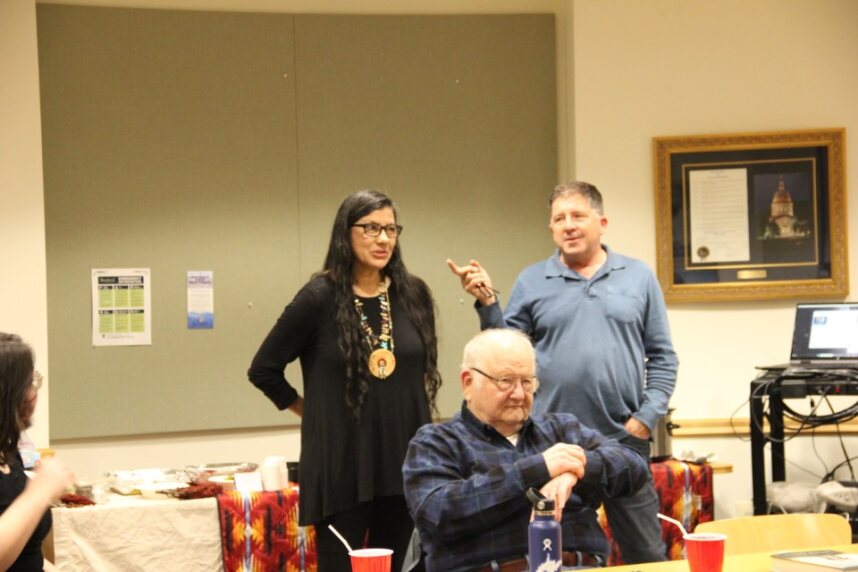| By Elizabeth Alfred - February 22, 2024 The Appalachian Studies Department, Foodways and Foraging students gathered at the Robert C. Bryd Center on Thursday, February 22, 2024, to participate in a classroom potluck. Students shared renditions of traditional Native American recipes and gathered to reflect on indigenous and POC (people of color) contributions to Appalachian foodways. Various beloved regional delights were brought, including venison, cornbread, and squirrels. As well as lesser-known recipes like chickweed pesto, pashofa and popcorn pudding. |
Professor Clay Morris invited Renee White, a member of the Eastern Lumbee nation, to join the evening and share her experience with native ecological knowledge. Renee is a veteran, artist, and indigenous food advocate. She is currently leading the venture of mapping Native American food trails. Mrs. White shared her experience with the group and recommended literature focusing on native food and practices, such as Braiding Sweet Grass by Robin Wall Kimmerer and Recovering the Sacred by Winona LaDuke.
After dining, students sat in a communal circle, sharing insights and lessons they had learned from the current course section. Common perspectives included the importance of adopted practices of Native American foodways and their lasting influence on modern America. As well as the acknowledgment of the current underrepresentation of Native and POC voices in mainstream Appalachian culture despite their contributions and influence.
Students from throughout the region with various backgrounds found commonality in celebrating food and the stories it tells. The unifying love and appreciation for food and family, which is deeply intertwined with Appalachian culture, was shared amongst students and guests.
After dining, students sat in a communal circle, sharing insights and lessons they had learned from the current course section. Common perspectives included the importance of adopted practices of Native American foodways and their lasting influence on modern America. As well as the acknowledgment of the current underrepresentation of Native and POC voices in mainstream Appalachian culture despite their contributions and influence.
Students from throughout the region with various backgrounds found commonality in celebrating food and the stories it tells. The unifying love and appreciation for food and family, which is deeply intertwined with Appalachian culture, was shared amongst students and guests.


 RSS Feed
RSS Feed